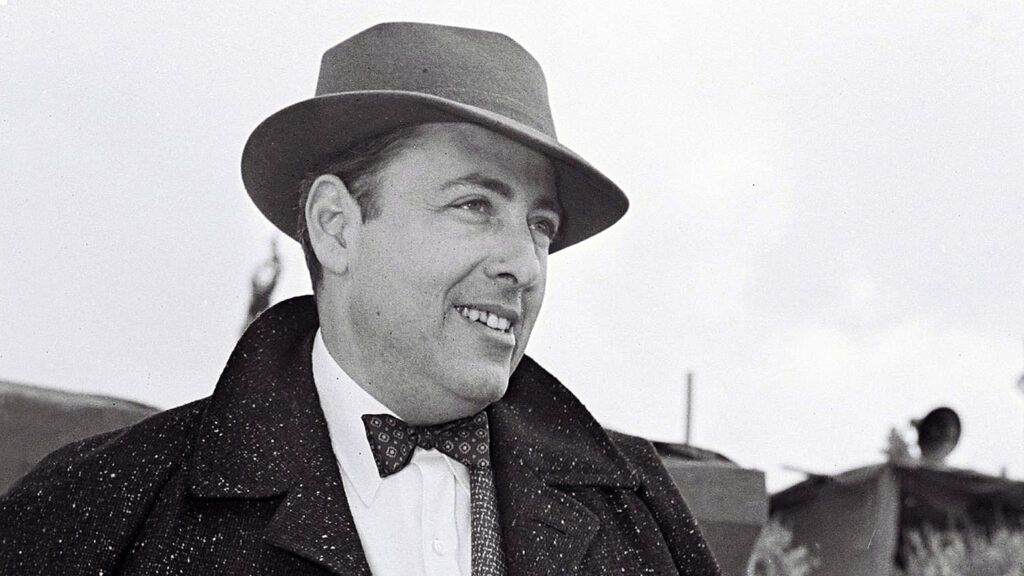The Sabbath has cut most sharply athwart my own life when one of my plays has been in rehearsal or in tryout. The crisis atmosphere of an attempt at Broadway is a legend of our time, and a true one; I have felt under less pressure going into battle at sea.
Friday afternoon, during these rehearsals, inevitably seems to come when the project is tottering on the edge of ruin. I have sometimes felt guilty of treason, holding to the Sabbath in such a desperate situation. But then, experience has taught me that a theater enterprise almost always is in such a case. Sometimes it does totter to ruin, and sometimes it totters to great prosperity, but tottering is its normal gait, and cries of anguish are its normal tone of voice.
So I have reluctantly taken leave of my colleagues on Friday afternoon, and rejoined them on Saturday night. The play has never yet collapsed in the meantime. When I return I find it tottering as before, and the anguished cries as normally despairing as ever. My plays have encountered in the end both success and failure, but I cannot honestly ascribe either result to my observing the Sabbath.
Leaving the gloomy theatre, the littered coffee cups, the jumbled scarred-up scripts, the haggard actors, the shouting stagehands, the bedeviled director, the knuckle-gnawing producer, the clattering typewriter, and the dense tobacco smoke and backstage dust, I have come home. It has been a startling change, very like a brief return from the wars.
My wife and my boys, whose existence I have almost forgotten in the anxious shoring up of the tottering ruin, are waiting for me, gay, dressed in holiday clothes, and looking to me marvelously attractive. We have sat down to a splendid dinner, at a table graced with flowers and the old Sabbath symbols: the burning candles, the twisted loaves and the stuffed fish.
I have blessed my boys with the ancient blessing; we have sung the pleasantly syncopated Sabbath table hymns. The talk has had little to do with tottering ruins. My wife and I have caught up with our week’s conversation. The boys, knowing that the Sabbath is the occasion for asking questions, have asked them.
The Bible, the encyclopedia, the atlas, have piled up on the table. We talk of Judaism, and there are the usual impossible boys’ queries about God, which my wife and I field clumsily but as well as we can. For me it is a retreat into restorative magic.
Saturday has passed in much the same manner. The boys are at home in the synagogue, and they like it. They like even more the assured presence of their parents. In the weekday press of schooling, household chores, and work—and especially in a play-producing time—it often happens that they see little of us. On the Sabbath we are always there, and they know it. They know too that I am not working, and that my wife is at her ease. It is their day.
It is my day, too. The telephone is silent. I can think, read, study, walk, or do nothing. It is an oasis of quiet. When night falls, I go back to the wonderful nerve-racking Broadway game. Often I make my best contribution of the week then and there to the grisly literary surgery that goes on and on until opening night.
My producer one Saturday night said to me, “I don’t envy you your religion, but I envy you your Sabbath.”
I mention this experience because I think it comes closest to reproducing in my own life what the Sabbath must have been to our forefathers. In a lucky group like the American Jewish community, which has its full share of life’s good things, and which lives at peace, the change from the weekday to the Sabbath is not quite the old dramatic plunge from gloom, trouble, penury, and crisis to peaceful and graceful pleasure.
Our fathers saved all new clothes, all luxurious food, for the day that honored the Creator. No man was so poor that he did not have the lights, the twisted loaves, and the bit of meat and fish. The synagogue gave him these things if he could not buy them. The restrictions of the Sabbath again, which seem to tug at every turn of American life, were second nature to our fathers, and had vanished into ordinary reality. One did not do a large number of acts on the seventh day as a modern gentleman does not do a large number of acts on any day. Of course the Sabbath rules were laws of religion, not of convention. But they were so familiar that they were the very air of life rather than self-consciously executed disciplines. There was no grain for them to go against. They were the grain.
For more inspiring stories, subscribe to Guideposts magazine.






